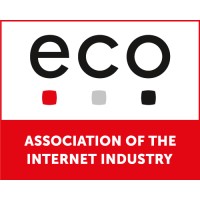Bring Women Back to Work
eco Association’s Hanna von der Au spoke to Salesforce’s Vanessa Gentile about the “Bring Women Back to Work” initiative and women in the tech industry.

© monstArrr_| istockphoto.com
The “Bring Women Back to Work” initiative aims to increase the number of women in the tech industry and support women who have had a career break to re-enter the workforce. The program also supports women who want to make it as newcomers in tech, thus positively influencing gender equality in IT. Returning to work after a family break can be daunting and raise questions about skills, experience, confidence, and working hours. Through the program, Salesforce helps women regain their confidence and ease their re-entry – or start – into the technology industry. The initiative involves 12 months of training. In the process, women pursue an admin certification offered by Trailhead Academy, receive mentoring, coaching, workshops and more.
Hanna von der Au: Vanessa, you started the Bring Women Back to Work initiative at Salesforce. A program to help mothers cross-train and re-enter the workforce after taking a family break. How did that come about?
Vanessa Gentile: The original idea for the Bring Women Back to Work program came from a roundtable with our partners on the topic of diversity. We were faced with the challenge that we had grown very strongly at a steady pace, and, at the same time, it was becoming increasingly difficult to find talent. I noticed that we had too few women in our teams. My partners and I wanted to change that. In order to increase the share of women, I wanted our partners to be willing to hire women who were not from the tech industry.
I wanted them to hire women who have had a longer break, who would like to come in part-time, who don’t have a tech background. Women who just bring different skills and abilities to the Salesforce ecosystem. With the help of a neurologist, I explained to our partners the benefits of diverse female candidates, what diversity means for the creativity and innovation of teams. Everyone was convinced, and I had the commitment of the partners in the bag.
Von der Au: Why do you think the tech industry is particularly suitable for women?
Vanessa Gentile: The tech industry is very flexible. Employees are benchmarked by their results and not by hours worked, and by a culture of presence. This means you can work and manage your family without having to constantly apologise when you’re absent. For me, the tech industry is, therefore, the ideal place to combine family and work.
Secondly, the tech industry is very diverse. You have many facets and departments, such as marketing or sales, and not just the classic IT disciplines, and they all offer enormous development potential and career opportunities. I have had various jobs in tech and have been successful everywhere. I have always learned something new, and each station has brought me further. I’m never in my comfort zone but, instead, I’m constantly learning new things, and that opens up new doors and paths.
Von der Au: How does the program actually work?
Vanessa Gentile: Our partner, K2 University, does the pre-selection of the applicants for us. In the second step, I screen the profiles of the women and K2 then shares it with our partners. The women don’t know anything about technology at the beginning, but they bring themselves as people and their experiences to the table. When companies start to rethink and hire people with different profiles, they very quickly realise the added value this offers. Sixty-five per cent of the women from the program now have permanent jobs. I have partners who have hired up to six or seven women from the program and plan to do so in the future.
The Bring Women Back to Work program is scheduled to run over one year. On the one hand, it includes workshops on questions such as: How do I present and sell myself to potential employers? What are my strengths, what are my weaknesses? There are also workshops that teach the basics of tech vocabulary. On the other hand, the women in the Salesforce program acquire certifications and thus important professional skills that increase their job opportunities enormously, as the certifications are recognized and in great demand in the industry.
Von der Au: You successfully set up the Bring Women Back to Work program. What do you think tech companies can do to attract more female talent?
Vanessa Gentile: This is a topic we could talk about for hours. It starts with the question: What is the reason why women don’t find tech jobs attractive? I think it’s often down to the job description. Companies should ask themselves: How do I formulate a job advertisement in such a way that women feel specifically addressed? Studies also show that women only apply if they meet 100 per cent of the criteria. Men, on the other hand, apply at 60 per cent. As a result, there are already more male candidates than women in job interviews.
Mothers as re-entrants and career changers after parental leave are also a central topic. In Switzerland, we need a plan, because not everyone is willing to or can go back to their job. What do companies offer women who return to work after parental leave? Companies need to become more flexible in this respect: for example, through initiatives like Bring Women Back to Work. It would also be helpful to allow longer parental leave for fathers so that women are more flexible at work. I simply don’t see enough of such topics and offers in the companies. Which company offers childcare or special conditions for families? I think that this is definitely feasible and possible if a culture of diversity and inclusion is given life in the company and these topics are also seriously pursued and addressed.
Vanessa Gentile is Director Alliance & Channel Switzerland at Salesforce and founder of the Salesforce initiative Bring Women Back to Work. With the initiative, she increases the share of Women in Tech and brings Salesforce technology partners together with new, diverse talent.
Please note: The opinions expressed in Industry Insights published by dotmagazine are the author’s own and do not reflect the view of the publisher, eco – Association of the Internet Industry.








